Prayer for rain, water rations: Catalonia struggles with drought
With no sign of rain clouds, the Catalan regional government broadens curbs on water use to 495 towns or villages.
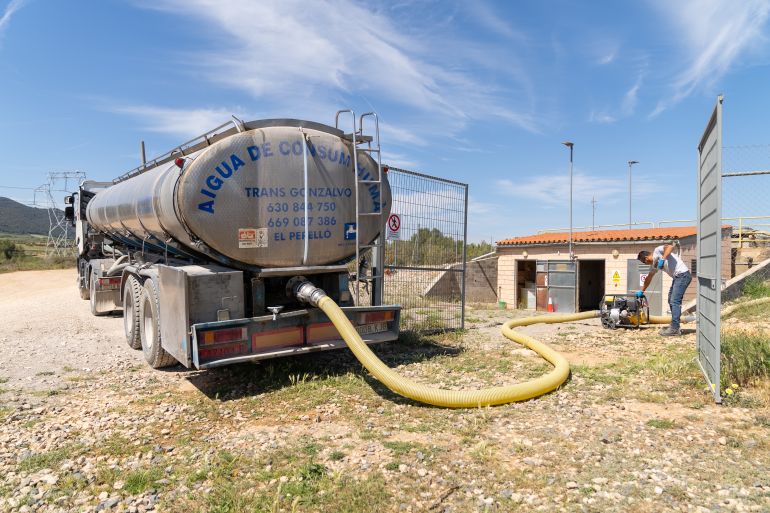
L’Espluga de Francoli, Spain – Father Antonio Rosario will call on the Lord next month to open the heavens and bring some desperately needed rain to his parish.
The priest is to lead a special procession with an effigy of the Holy Trinity, reviving a tradition in L’Espluga de Francolí dating from the 18th century.
Keep reading
list of 3 itemsPhotos: World’s water in focus after year of droughts and floods
In southern Ethiopia, drought kills livestock and brings hunger
“I have already said prayers at Mass to ask for rain but this will be a ceremony, in which we will take an [effigy] of the Holy Trinity from a hermitage outside the town and call for rain. Our need is so great,” Father Rosario told Al Jazeera.
Spaniards have a saying that during droughts, the trees chase after the dogs. However, in this town, where no rain has fallen for more than a year, it is the people who are desperate for any sign of drops.
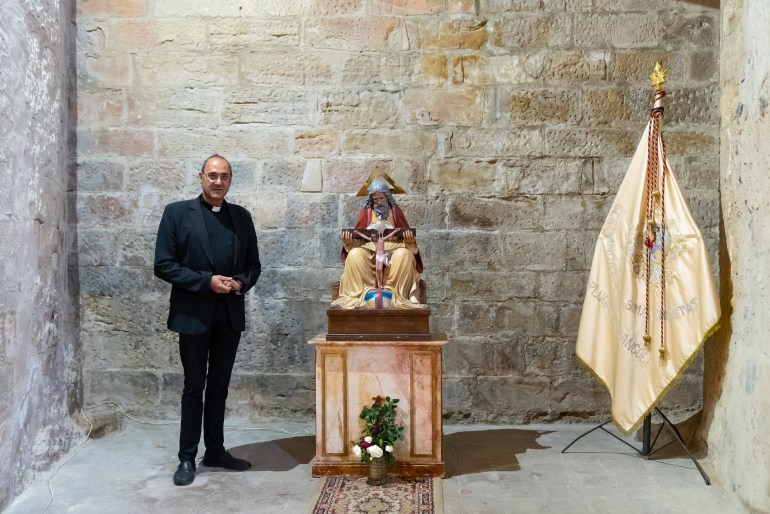
Like hundreds of towns across Spain, this municipality in the hills of Catalonia has had restrictions placed on the water supply.
Authorities turn the tap off between 10pm and 7am (20:00 to 05:00 GMT), making it impossible to take a shower, clean, wash plates or put on the washing machine. Spaniards eat late, so this affects many.
During the day, villagers collect water in bottles or buckets to have enough for daily essentials.
“I must get up to go to work at 5am so I cannot have a shower before leaving home. Luckily, they have showers at the factory,” said Manuel Navas, who works in a paper mill.
Juanita Pérez stores water during the day so she can clean the house or flush the toilet at night.
“At first, this annoyed me. Now, you get used to it. People didn’t always have running water in their houses. We must adapt to our situation,” she told Al Jazeera.
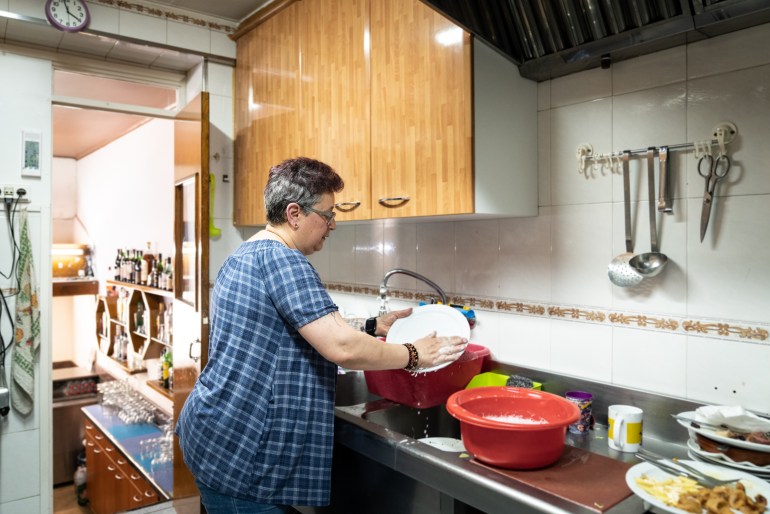
Up to 10 water trucks arrive every day, each carrying between 12,000 to 29,000 litres (3,170-7,660 gallons), to bring relief to a town where the underground aquifers have run dry.
Albert Einstein visited the town 100 years ago during a tour of Spain. Now, even a genius might struggle to solve Spain’s climate problem.
Ironically, L’Espluga de Francolí, about 120km (75 miles) south of Barcelona, was once famous for its water.
Tourists would come here to relax in its spas because it was believed the water contained magnesium and was of medicinal value. Not any more.
What is happening in this parched Catalan town is symbolic of the way Spain is slowly drying up.
Rainfall in the Iberian Peninsula has fallen about 25 percent since October last year, said Richard Torrijo, a spokesperson for AEMET, the Spanish national weather service.
Driest year on record
This came after 2021 was one of the driest on record.
The sequía – drought in Spanish – is made worse by the soaring temperatures, which have neared 40C (104F) in the south, making May seem more like the height of summer.
The countryside is like a tinderbox – the first forest fire of the year started in March after an unusually dry winter.
The blaze destroyed more than 30 square kilometres (11.5 square miles) of forest and forced 1,500 residents to abandon their homes near Valencia.
Andalusia in the deep south and Catalonia in the north have been worst affected by the drought.
The fields outside L’Espluga de Francolí are yellow instead of green as the crops waste away.
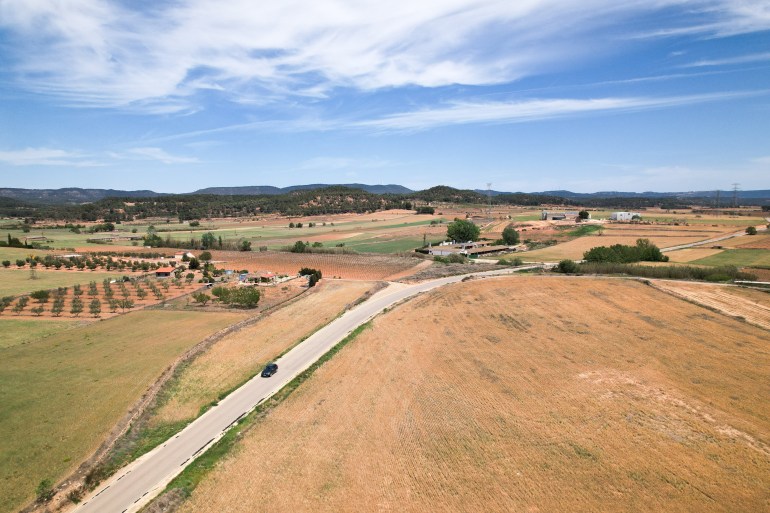
“It is not worth my while harvesting the wheat. It is a crop which depends on rain as does the vines and the olives,” Joan Arbos, who owns 40 hectares (99 acres) of farmland.
“We have had two years without proper rain but now it is very worrying. I depend on my farm for 100 percent of my income.”
As the water trucks arrived to deliver their precious cargo, Xavier Rossell, who has the unenviable task of managing the water supply for the town council, said: “I feel a sense of impotence. At times, I stay awake at night thinking about it. We cannot generate water.”
“We need to change our chip and value water more. The next wars will be fought over this,” Rossell added.
Reserves have fallen to 49.6 percent of their normal level across Spain, according to government data.
But in Sau reservoir, which provides the water for Barcelona, water levels have dropped to 7 percent, the lowest in the country.
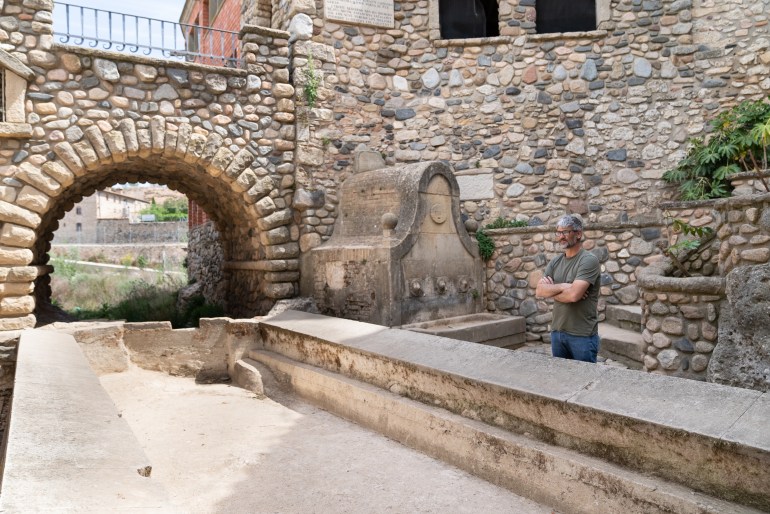
Sant Romà de Sau, an 11th-century church which was flooded along with the rest of a village when the reservoir was created in the 1960s, has emerged from the depths.
This has spawned a new “drought tourism”, in which people from Barcelona make the 100-km (62-mile) journey to this remote reservoir to take selfies next to the building.
Authorities were forced to syphon out the fish to stop them from dying and to preserve water quality.
With no sign of rain clouds, the Catalan regional government this week broadened curbs on water use to 495 towns or villages – almost doubling the number of municipalities under “exceptional measures”.
Farmers must cut water use to 40 percent of normal use, but this was reduced to 15 percent for industrial purposes.
Watering public and private areas has been banned and fines will be introduced for towns which waste water.
Back in L’Espluga de Francolí, bar owner Gerard Griño painted a grim picture of the future.
“This is a social problem. It is not just about this town, it is the same for all of Spain. People don’t blame the politicians, they blame the climate,” he told Al Jazeera.